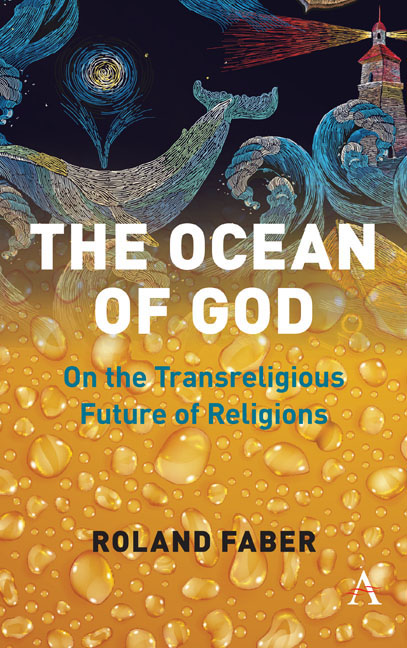Book contents
- Frontmatter
- Dedication
- Contents
- Introduction
- Part I Paradigms of Unity and Plurality
- Part II Negotiations of Multiplicity
- Chapter Six Convergences and Divergences: Juncture or Bifurcation?
- Chapter Seven Pluralism of Pluralisms?
- Chapter Eight Horizontal and Vertical Pluralism
- Chapter Nine An Experiment in Incompatibilities: Green Acre
- Chapter Ten The Mystery of Distinction and Unity
- Part III Transreligious Horizons
- Glossary
- References
- Index
Chapter Ten - The Mystery of Distinction and Unity
from Part II - Negotiations of Multiplicity
Published online by Cambridge University Press: 09 July 2019
- Frontmatter
- Dedication
- Contents
- Introduction
- Part I Paradigms of Unity and Plurality
- Part II Negotiations of Multiplicity
- Chapter Six Convergences and Divergences: Juncture or Bifurcation?
- Chapter Seven Pluralism of Pluralisms?
- Chapter Eight Horizontal and Vertical Pluralism
- Chapter Nine An Experiment in Incompatibilities: Green Acre
- Chapter Ten The Mystery of Distinction and Unity
- Part III Transreligious Horizons
- Glossary
- References
- Index
Summary
Say: Out of this Most Great Ocean there hath branched the Pre-existent Sea; blessed the one that hath attained and found repose upon its shores.
— Bahá’u'lláhWith the productive incompatibilities of the coordinate system of horizontal and vertical, synchronic and diachronic pluralism and the imperative of the two pluralisms of pluralisms, detailed in the preceding chapters, in mind, we can, now, seek to discern the unique contribution of the Bahá’í universe of discourse, paradigmatic for the new axial consciousness of the unity and plurality of religions, for the contemporary global engagement with one humanity and of humanity with the one Earth. This concretization does, of course, not take anything away from other potential exemplars of such a new axial discourse, especially, as we have seen, if they are as resonant as the Neo-Vedanta approach of Swami Vivekananda. Yet the unique position of the Bahá’í religion in this context results from the fact that it is not a philosophy of pluralism or a theology of religions or a hybrid transreligious theology or mystagogy. Nor is it a reform movement of, or denomination within, a religion or a hybrid religious community. Rather, it signifies the event of a new religion of, and in the character of, this new axial age— something that cannot be substituted by any other category just listed, although they all also contribute their own unique features to the discourses here employed. So, then, if we follow the Bahá’í scriptures in their own negotiations of religious pluralism with their declared aim of establishing the unity of religions, we are prompted to this utterance of Shoghi Effendi, the great-grandson of Bahá’u'lláh and the last authoritative interpreter of these scriptures, reflecting in condensed form the complex play of the two axes of pluralism as it reflects on the relativity and mutuality of religions:
The Faith standing identified with the name of Bahá’u'lláh disclaims any intention to belittle any of the Prophets gone before Him, to whittle down any of their teachings, to obscure, however slightly, the radiance of their Revelations, to oust them from the hearts of their followers, to abrogate the fundamentals of their doctrines, to discard any of their revealed Books, or to suppress the legitimate aspirations of their adherents.
- Type
- Chapter
- Information
- The Ocean of GodOn the Transreligious Future of Religions, pp. 111 - 122Publisher: Anthem PressPrint publication year: 2019



